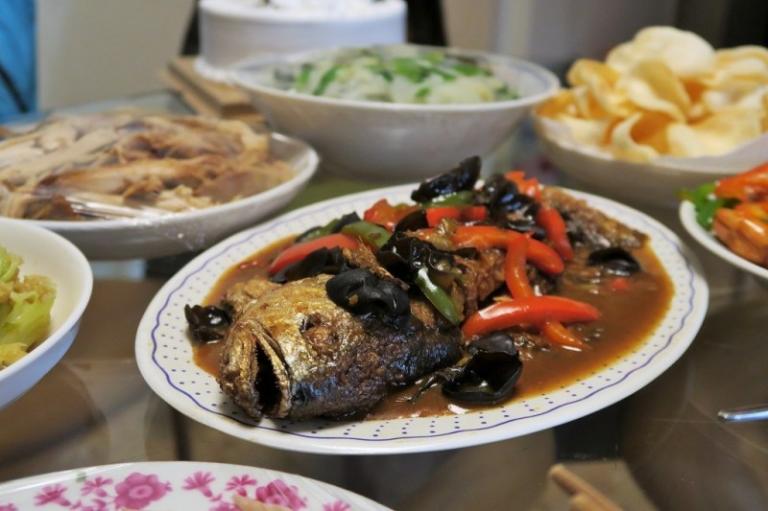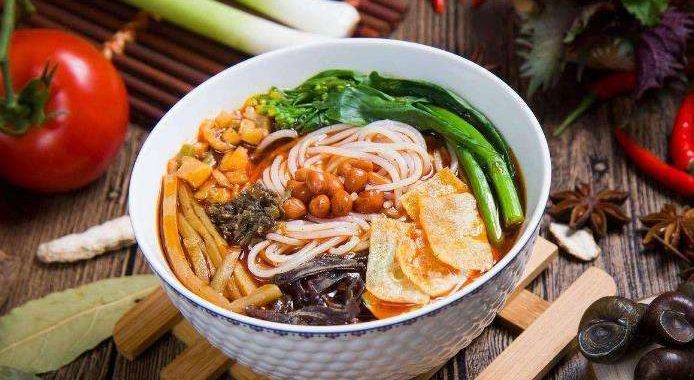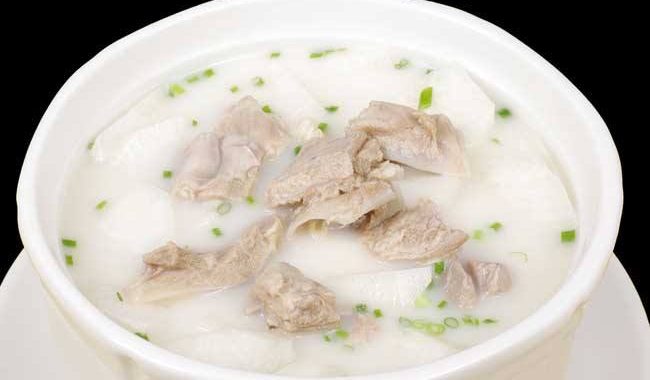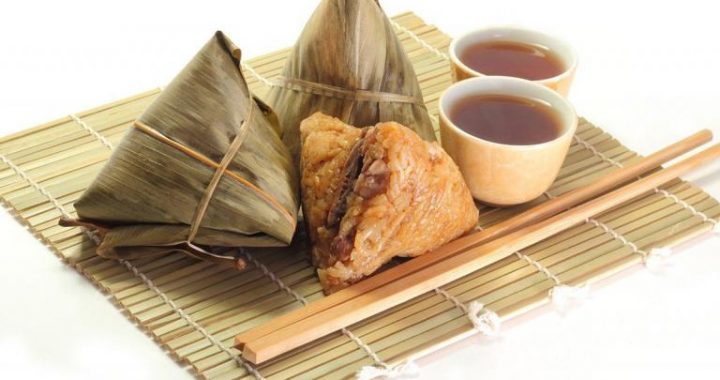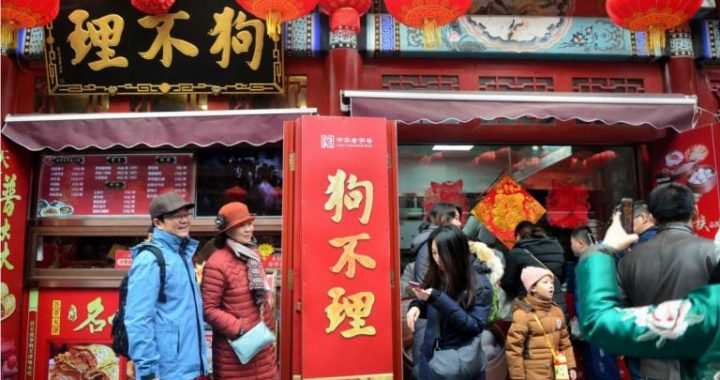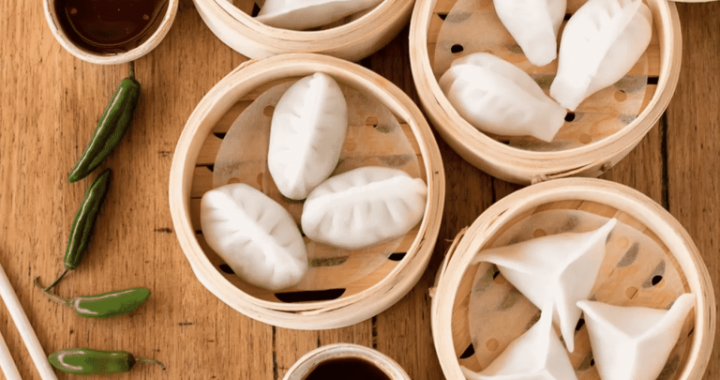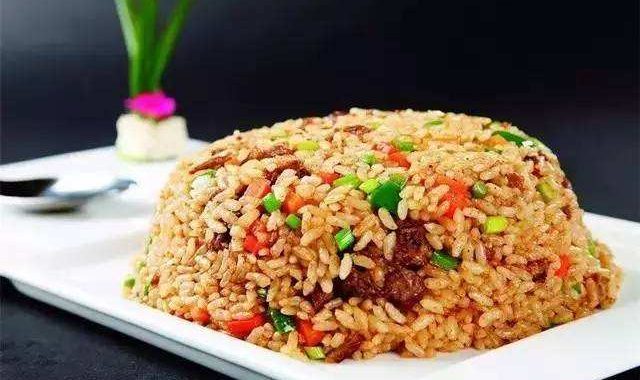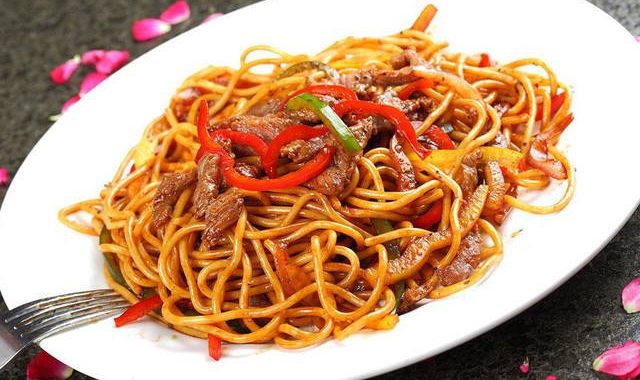Eating Taboos
9 min readThe traditional philosophy of the Chinese people emphasizes the importance of the “unity of man and nature.”This approach to life is manifested in the country’s eating culture in many ways.
In particular, there are many rules or taboos governing the way in which Chinese people eat on a daily basis-all of these are in place to promote balance and harmony between people and the food People eating pancake roll stuffed with green scallion and dipped in paste-a famous food from Shandong.
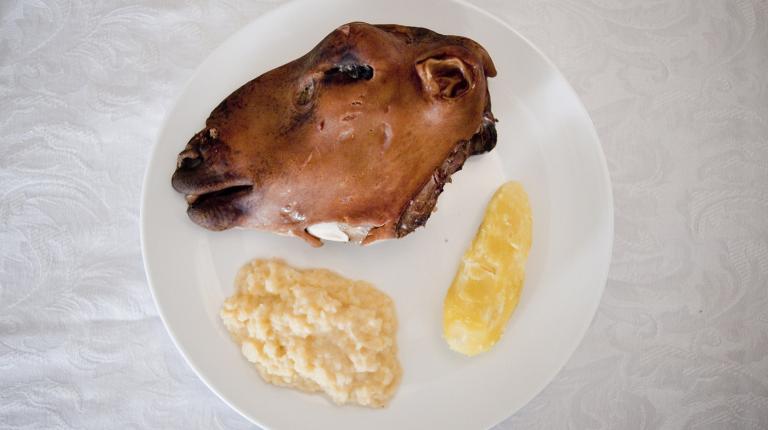
Chinese people place great importance on the careful matching of foods. Dumplings are eaten with vinegar, pancake rolls stuffed with green scallion are eaten with paste, deep-fried twisted dough sticks are eaten with soybean milk, and noodles are eaten with various “home dishes.”These include dishes made with both vegetable and meat. This matching of different foods is done to maintain the balance between yin and yang. In addition, staple foods and non-staple foods are also carefully matched together in a meal. For example, rice (a staple food) tastes bitter and warm. It is therefore often eaten with beef(a non-staple food) which tastes sweet and bland. Because the sweetness and bitterness of the two foods complement each other, the two foods match well. Other good matches include mutton and yellow rice, pork and cereal and bird meat and flour. In contrast, some foods are not compatible in terms of their natures and flavors. These foods can be harmful to a person’s health if they are mixed. For example, crabs and persimmons, rabbit meat and mustard,chicken and celery,rabbit meat and duck and pork and soybeans cannot be eaten together.These are all”food matching”taboos.Many people feel unwell because they have eaten badly matched food combinations such as these(this can happen when a person has drunk too much wine and is not watchful about the food they consume).
Chinese folk eating taboos also relate to the seasons.”Seasonal eating taboos”mean that it is acceptable to eat a certain food in one season,but unacceptable to eat it during another.For example,people think that eating chives in the winter and the spring can“warm the waist and knees,”while eating the same food in the summer“makes people dizzy.”Jiangxi people like eating fresh pepper in the summer and dry pepper in the winter.In they autumn,they usually do not eat pepper at all.
The Chinese have many eating taboos that cover the food they eat every day. Among the things that are taboo are: only eating dry food or eggs for breakfast, having a cold drink before or after a meal, drinking thick tea or eating fruit immediately after a meal, having a cold drink immediately after one has talked for a long period of time, eating too much before traveling by car and eating a lot of sugar after exercising. Although some Chinese people do not heed these taboos every day, they must be strictly observed when a person becomes physically ill or during special periods(such as during a women’s pregnancy and after she has given birth). As the saying goes,”maintenance is more important than treatment.”If an ill or weakened person does not follow these taboos andeats improperly, then they may experience a number of adverse reactions and their illness may be aggravated.
Among the foods that those suffering from an illness should avoid are the so-called “stimulatingfoods”. These are a wide range of foods that are thought to induce illnesses. They include chicken heads, pig heads, seafood, fish, beef, mutton and various seasonings. Traditional Chinese medicine doctors prohibit their patients from eating many such foods. Of course, different eating taboosapply to people suffering from different diseases. For example, if the body and limbs are cold, cold foods(such as watermelons, bananas and pears) should not be eaten. If one has a fever, feels thirsty, cannot sleep or feels perturbed, ginger, black pepper and white alcohol should be avoided.
When asthma strikes, high-protein foods such as eggs, milk, fish and shrimps should be avoided.
After catching a cold, one should not have any cold drinks, cold food, greasy food, sticky food or stimulating food. When taking tonic medicines, one should reduce the amount of tea that one drinks and eat fewer radishes. If this isn’t done then the effect of the tonic medicine will be weakened.
Scallion and garlic are used to enhance the flavor of food. They are seasonings that are often added to Chinese stir-fried dishes (people in the north of the country also like eating raw garlic).
However, scallion and garlic are also “stimulating foods”that are not suitable for some ill people, including those”suffering from excessive internal heat”. In addition, if old people eat too much scallion and garlic, their eyes can feel dry and their eyesight can be affected.
A number of eating taboos apply to pregnant women. They should ensure that they eat a full range of nutrients, but they should avoid eating too much piquant, hot, dry, greasy or indigestiblefood. Immediately after childbirth, they should eat vegetable foods for three or four days. During this time they should not eat stimulating foods, such as carp and crucian carp, as these can have a negative effect on how quickly their wounds will heal. However eating cuttlefish(which warms the body and invigorates vital energy) can be quite beneficial to the healing of wounds. Later,”stimulating foods”such as crucian carp, pig’s trotters and eggs are usually eaten to promote lactation.
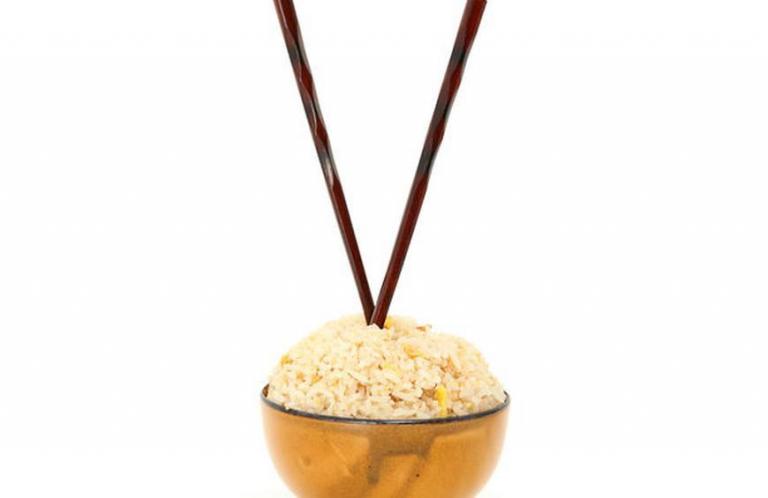
It should be recognized that some Chinese eating taboos are only folk customs that have no scientific basis. For example, people in some areas think that pregnant women should not eat rabbit meat, donkey meat, turtle meat, eel or loach. They believe that if they do then these women’s children will have, respectively, harelips, donkeys’ faces, small heads, small faces and small eyes.
Seen from a scientific perspective, these eating taboos are obviously absurd. However, they do illustrate that people have the best interests of the soon-to-be-born children at heart. They also reflect China’s folk culture.
Eating taboos are closely related to the religion, customs and traditions of a country or region. Different food taboos are therefore observed by different cultures all around the world. Indeed,a food favored by people in one culture might be a taboo in another culture. For example, Indians think that cows are holy animals(and prohibit their slaughter through legislation) and Jews don’t eat pork, while Europeans and Americans eat both beef and pork but feel disgusted when they hear that people of other nationalities eat insects and dog meat.
Chinese religious eating taboos are mainly observed by Buddhists, Taoists and Muslims. For example, Han Chinese Buddhism prohibits its believers from eating meat because this violates their doctrine that prohibits killing. It is interesting that there is no such rule in countries such as India and Sri Lanka and that this taboo is not followed by Chinese Tibetan Buddhist monks (who are mainly distributed in the Tibet Autonomous Region, Qinghai Province, Inner Mongolia Autonomous Region, Sichuan Province and Gansu Province) and by Southern Buddhist monks(who are mainly distributed in areas inhabited by the Dai people, the Blang people and the Deang people in Yunnan).
Han Chinese Buddhism also prohibits its believers from drinking wine. The religion’s taboos reflect other Han customs and traditions, including the ancient Chinese belief that, in order to show piety, one should refrain from drinking wine and eating meat before offering a sacrifice. Indigenous Chinese Taoism also has rules that prohibit eating meat and drinking wine. The China(Qinghai) International Halal Food and Products Fair purpose of these doctrines is to protect the internal organs and recuperate the spirit of believers.
The rules stem from the fact that the religion does not advocate complicated tastes and holds that immortals achieve enlightenment because they do not eat delicacies. The main Islamic eating taboos originate from The Quran. These eating rules are now followed by the 1.57 billion Muslims who live around the world, including those Chinese ethnic groups that believe in Islam(these include the Hui, Uygur, Kazak, Kirgiz, Salar, Dongxiang, Bonan, Tajik, Tatar and Ozbek). Muslims do not eat pork, lard or the meat of animals that have not been slaughtered. They do not drink alcohol or any other intoxicating substances. These customs are widely respected in China and in all urban and rural areas where Muslims live there are Muslim food stores and Muslim restaurants.
Muslim food is also available in many public places such as hotels, schools, hospitals, planes andtrains. In addition, Chinese regulations stipulate that Muslim foods must be marked with the word”Muslim”to differentiate them from other foods when they are being stored, transported or sold.
Some other Chinese eating taboos are also based on religious beliefs. For example, in some parts of the country, eating snakes is considered to be a blasphemous act because it is thought that snakes are gods that protect people. It is therefore thought that snakes should be protected(it should also be noted that in some areas in the south of China snake meat is regarded as a delicacy).
Some professions have their own eating taboos.For example,the fishermen that live in many of China’s coastal areas believe that,before they can eat fish for the first time in the New Year,they must bring raw fish heads to the bow of their boats and offer them to the dragon king and to the sea god as sacrifices.They also believe that,when eating a fish,they should first eat its upper side,then remove its bones and then eat its lower side.In addition,they believe that they should leave a bowl of fish or fish soup uneaten after every meal and that this leftover food should be put into thefish cooked for the next meal.This practice is meant to symbolize the constant flow of fish that they hope will fill their nets.Finally,many Chinese fishermen believe that they should not put leftovers(such as fish bones and dish-washing water)into the sea.
Further examples of eating taboos come from the Tibetans in the west of China.Tibetans never catch and eat birds and pheasants,especially snow pheasants,as they regard these animals to be holy birds.They also do not eat the meat of cattle and sheep immediately after these animals have been slaughtered.Instead they wait for a day.This custom stems from the Tibetan belief that the souls of slaughtered animals do not immediately leave their bodies.The Tibetans also consider it wrong to eat garlic. Garlic is therefore strictly prohibited on all holy sites.
It is very interesting to compare the eating taboos of different ethnic groups or regions.
Sometimes the eating taboos of one group of people are completely opposite to those of another group. For example, the Miao people prohibit the beating, killing and eating of dogs, but Koreans like eating dog meat and give it to their guests as a treat. The Miao people usually serve their guests with chicken and duck at banquets. They consider the heart and liver to be the most precious parts of these animals and therefore let their guests and respected elders eat them first. In contrast, Nu people do not kill chickens for their guests(the guests of Nu families should therefore not request chicken to eat).
Some ethnic groups’ eating taboos seem a little incomprehensible. Take the traditions of the Yi people in Yunnan, as an example. These people believe that if a grinding shaft breaks when it is being used, then the flour that was being ground should not be eaten. They believe that if a sheepsuddenly bleats when it is brought into a room to be slaughtered, then its life should be spared.
They believe that if a chicken inadvertently jumps over a table on which dishes have just beenplaced in preparation for a meal, then the meal should be prepared again. They also believe that children cannot eat chicken stomachs, chicken tails, pig ears and sheep ears.
When it comes to religious, ethnic or local customs, it is inappropriate to say which are right and wrong and which are superior or inferior. However, it is interesting to note that eating taboos have helped to create a series of unique foods with special flavors. For example, Buddhist and Taoist taboos about eating meat provided the impetus for the development of many characteristicChinese vegetarian dishes by temple cooks. These dishes include the Beijing Fayuan Temple’s rice crusts with mushrooms, the Nanjing Baoen Temple’s soft sweet cakes, the Nanjing Buddhist monk Xiaotang’s ox head dried bean curd and the Xiamen Nanputuo Temple’s soup dishes.
